Since we are starting to cover Pure Storage, we have a bit of news from the company. Namely, Pure is announcing an expansion of its Purity software base and is expanding its FlashArray line. While the company pushes for simplicity, the announcement is anything but simple.
Pure Storage Purity and FlashArray Expansion
First, here is the high-level announcement summary. Effectively there are new software features for the FlashBlade and FlashArray line. The FlashArray line is also adding new QLC options.
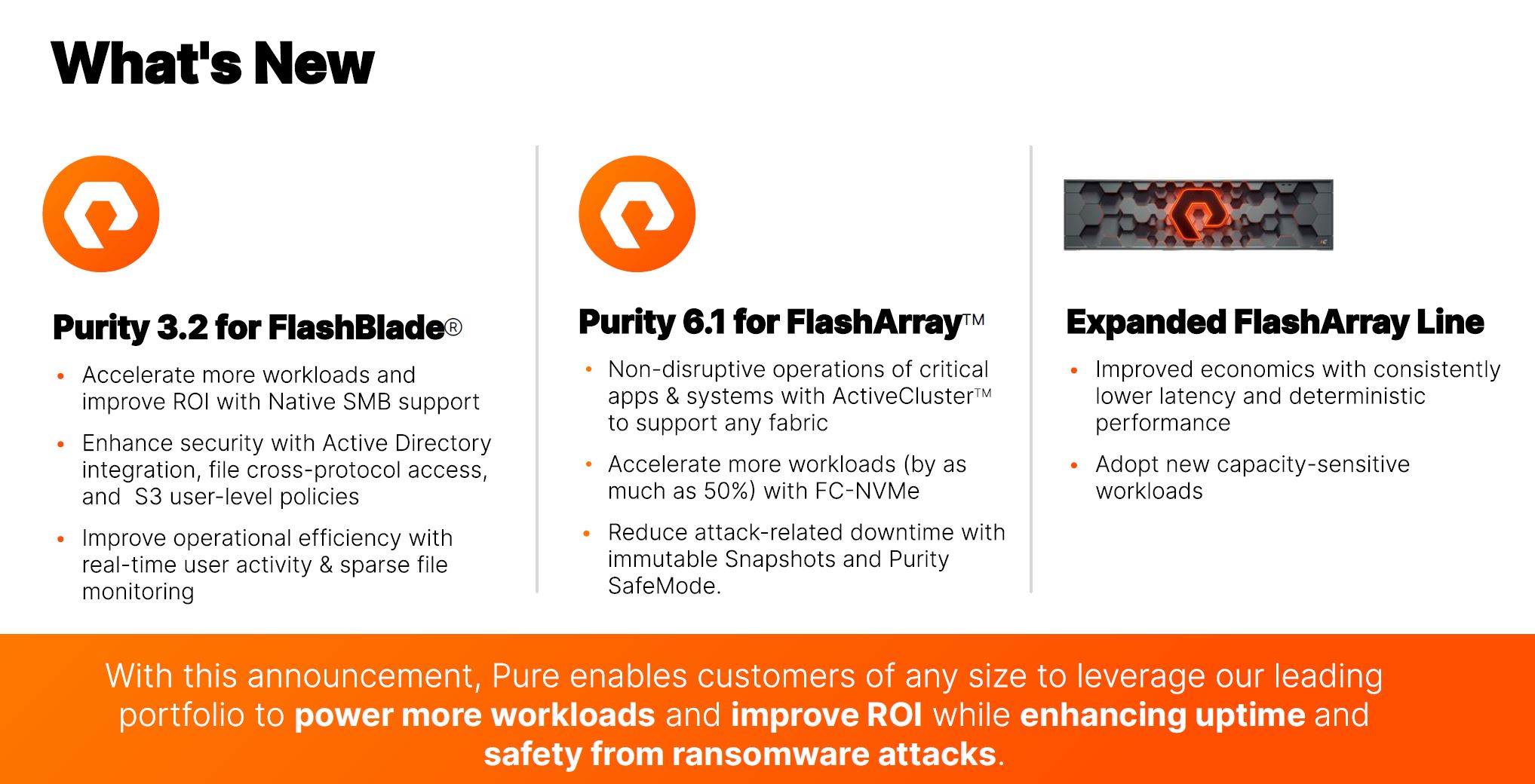
For those who are not well attuned to the Pure stack, here is a fairly complex pyramid chart with scale, cost, and latency as the three sides. Effectively there are the FlashArray//X, the FlashBlade, and FlashArray//C lines. Portworx is a recent acquisition that will address scale-out and container storage for the company. Features such as Pure1, Evergreen, and Pure-as-a-Service are the software/ management/ and GTM initiatives behind the product portfolio. This is probably one of the most complex diagrams for a company that has 3-4 products that you will see.
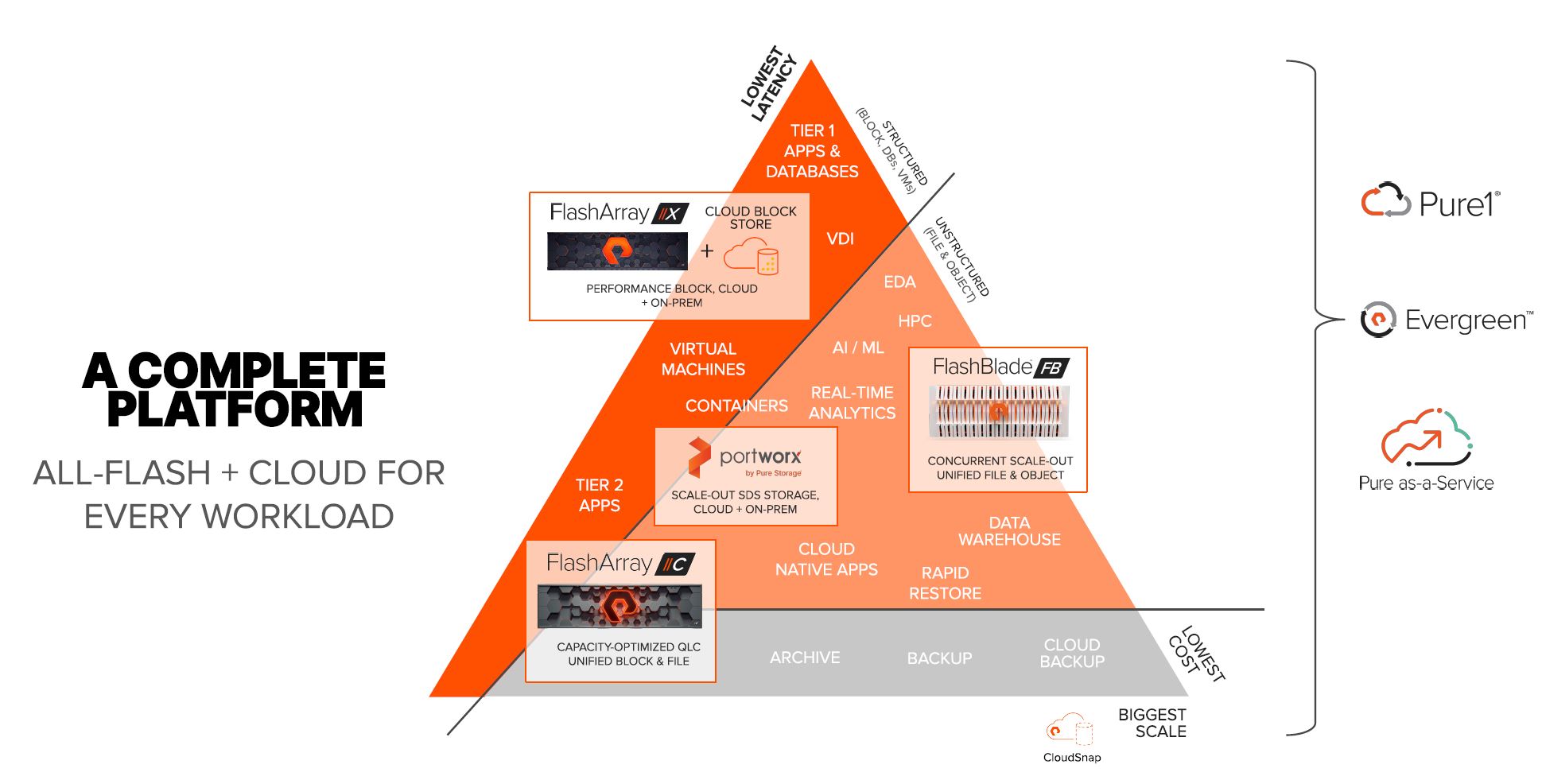
Getting into the details, the FlashBlade line is focusing on Unified Fast File and Object storage. With the new Purity//FB 3.2 release, we get fast NFS, SMB, and S3 storage. One of the “cool” features is the “Granular Real-Time Insights” feature. This allows a storage administrator or management software to identify users that are using a lot of storage or storage performance. Many storage admins are aware of what happens when a user kicks off a set of jobs/ applications that hits storage hard. This gives the team the ability to identify who is generating that activity.
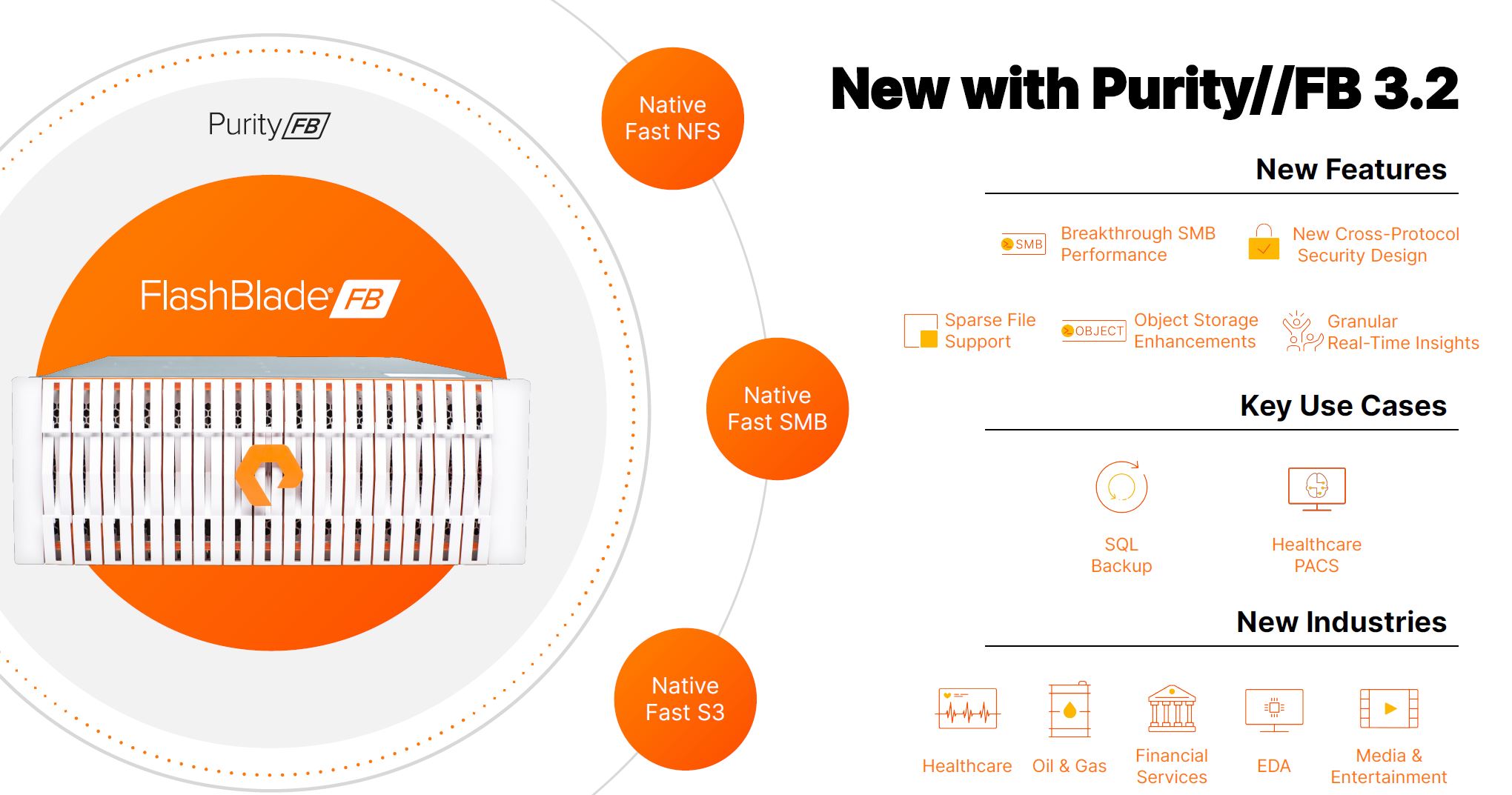
On the FlashArray side we get Purity//FA 6.1 For those wondering, the fact that Purity//FA is at 6.1 and Purity//FB is only at 3.2 does not mean the FlashBlade product is inferior, it is just two lines. Here we get a few new features that one can see on the slide. Perhaps the most interesting here is the addition of FC-NVMe. Pure is natively supporting FC-NVMe which is important for some geographic markets heavily dependent on FC storage. There are also features like the new ActiveCluster features to help increase uptime and reliability as well as adding features such as immutable snapshots to help prevent against ransomware.
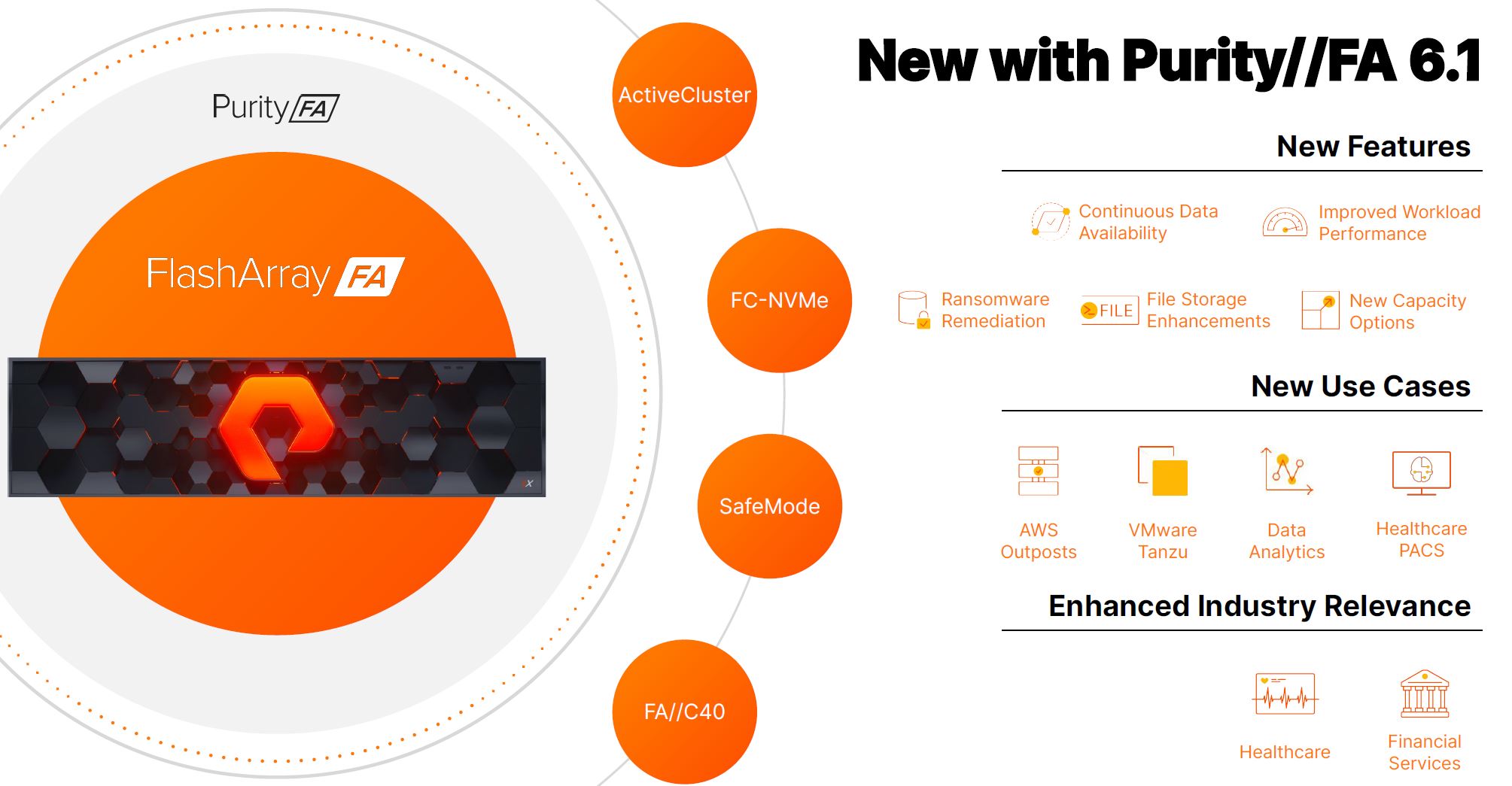
The FlashArray//C series is expanding to QLC NAND. The 33% storage efficiency is a result of going from 3-bit per cell or TLC NAND to 4-bit per cell or QLC NAND. As a result, the new FlashArrays can offer more capacity at a lower cost while Pure’s software manages data placement, wear leveling and upgrade cycles.
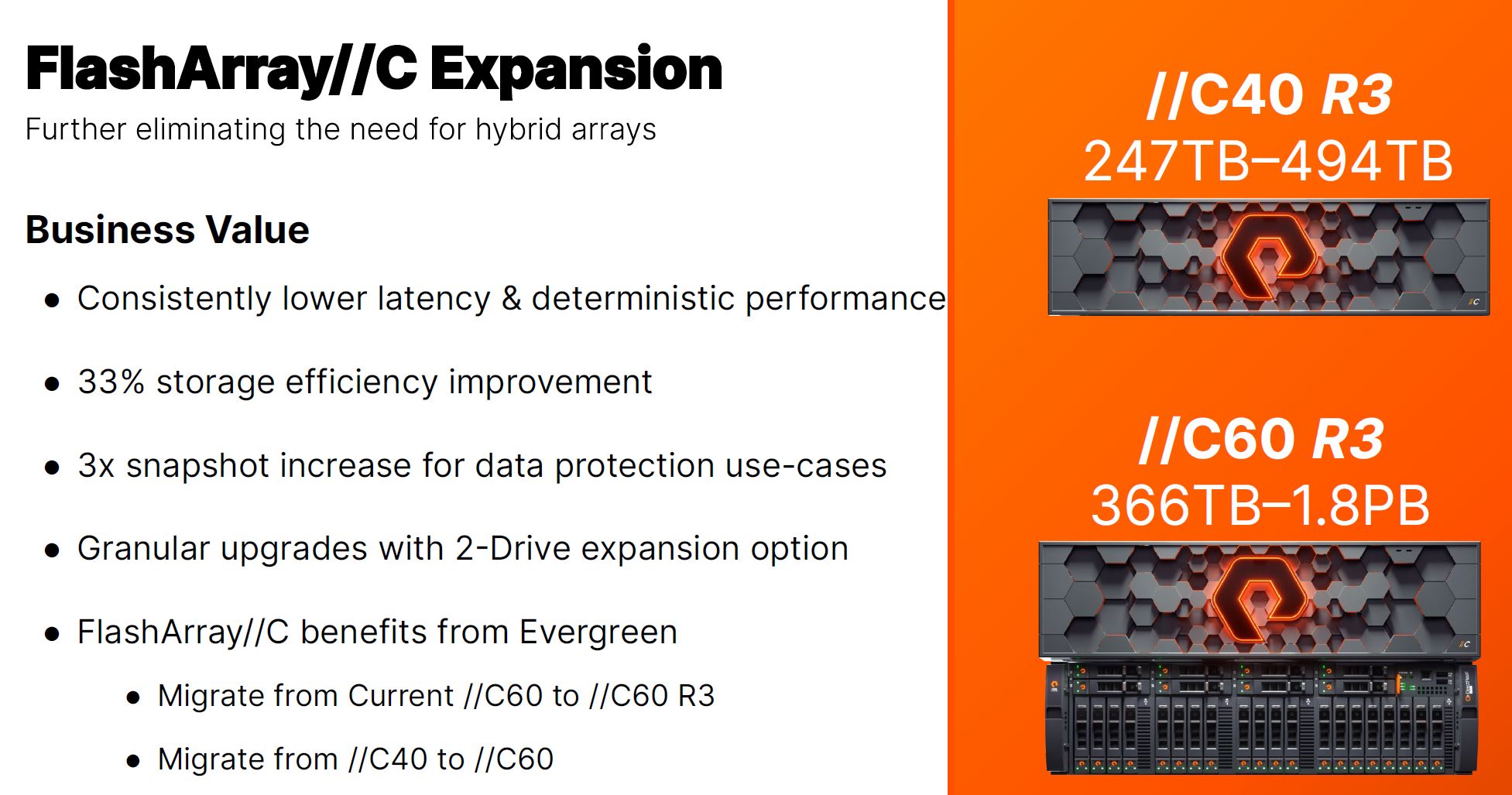
The company is also announcing upgrades down to only adding two drives at a time which means a company can add storage in smaller increments than it could previously.
Final Words
Whereas years ago there was an enormous number of flash storage array vendors, Pure Storage ended up being the survivor in the industry and has thrived with largely differentiated architectures. The storage space is always interesting because some vendors create new solutions addressing specific niches. Pure has gone the other direction and has a smaller portfolio but is adding functionality to a portfolio and then telling customers that it can take responsibility for upgrades and hardware refreshes over time.

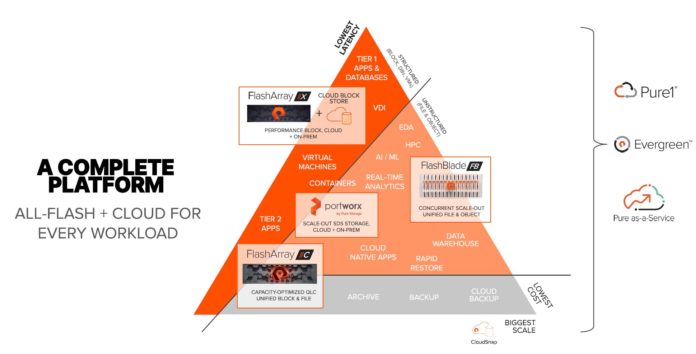



Let’s see a STH teardown!
So, they are running Ceph?
@James No Ceph (full disclosure: I work for Pure).